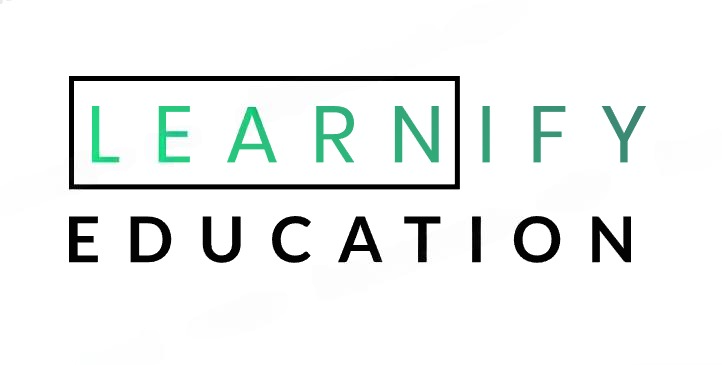What is the Difference Between Online Learning and Distance Learning?
Compare India’s leading universities on a single platform within two minutes. Online MBA for job professionals 100 + Universities 30X comparison factors Free expert consultation Quick Loan facility Post Admission Support Learnify Exclusive Community Job + Internship Portal No-Cost EMI From ₹5100/- Subsidy Available upto ₹20,000/- Education has undergone a dramatic transformation, especially in the 21st century. Among the modern methods, online learning and distance learning have become prominent ways for students and professionals to enhance their knowledge. While these two terms are sometimes used interchangeably, they represent distinct modes of learning, each with its unique approach, benefits, and challenges. In this article, we will dive deep into the differences between online learning and distance learning, their advantages, and how to choose the best option for your educational needs. Understanding Online Learning What is Online Learning? Online learning refers to education that happens entirely over the internet. Whether it’s a degree program, certification course, or a corporate training module, the entire process involves digital tools and platforms. It often mimics the traditional classroom experience, but virtually. Features of Online Learning Real-Time or Recorded Classes: Offers live sessions where instructors and students interact in real-time. Includes pre-recorded lessons for those who prefer self-paced learning. Interactive Environment: Uses video calls, virtual whiteboards, breakout rooms, and polls for engagement. Facilitates peer-to-peer interaction through group discussions, forums, and collaborative projects. Use of Technology: Platforms like Zoom, Google Classroom, or Moodle deliver the content. E-learning tools like digital quizzes, multimedia presentations, and virtual labs enhance learning. Advantages of Online Learning Global Access: Learn from instructors and institutions across the globe, right from your home. Collaborative Learning: Encourages teamwork and peer interactions in a virtual setting. Flexible Timing: Many courses allow learners to balance their personal and professional lives. Career-Oriented: Offers certifications and professional skills aligned with market needs. Understanding Distance Learning What is Distance Learning? Distance learning is a broader form of education where learners are not physically present in a classroom. While it includes online elements, it may also rely on offline methods like printed study materials, DVDs, or postal correspondence. Features of Distance Learning Self-Paced Study: Allows learners to progress at their convenience without strict deadlines. Materials are provided in advance, and students follow a structured curriculum independently. Minimal Interaction: Communication with instructors is limited and usually done via email or scheduled calls. Peer interaction is rare or nonexistent. Offline and Online Tools: Offline tools like printed textbooks or recorded lectures supplement digital platforms. Advantages of Distance Learning High Flexibility: Perfect for individuals with busy schedules or living in remote areas. Affordable: Costs are generally lower since it does not heavily rely on live instructors or advanced technologies. Wide Accessibility: Beneficial for students with limited internet access or those in rural areas. Key Differences Between Online and Distance Learning Below is a detailed comparison of online learning and distance learning: Criteria Online Learning Distance Learning Delivery Method Fully digital, conducted over the internet. Mix of online and offline methods like print materials. Interaction Real-time interaction with instructors and peers. Minimal interaction, often limited to emails. Technology Dependency Entirely dependent on technology and internet. Less reliant on technology; can use postal methods. Pace of Learning Moderately flexible; involves live sessions and deadlines. Fully flexible; students can learn at their own pace. Cost Generally more expensive due to live teaching. More affordable, with limited use of digital tools. Collaboration Encourages group projects and teamwork. Focuses on individual learning. Ideal For Students seeking interactive, career-oriented education. Students with time constraints or limited internet access. Online Learning vs. Distance Learning: Which One is Right for You? The choice between online learning and distance learning depends on your unique circumstances, goals, and preferences. Let’s break it down: Choose Online Learning If: You enjoy real-time interaction with instructors and classmates. You have reliable access to the internet and digital devices. You’re pursuing career-oriented programs with certifications. You thrive in a structured learning environment with deadlines. Choose Distance Learning If: You prefer studying independently at your own pace. You live in a remote area with limited access to technology. You need an affordable and flexible way to gain qualifications. You are balancing education with a full-time job or other commitments. Benefits of Combining Both Modes In recent years, many institutions are blending online learning and distance learning to create hybrid models. These programs offer: Flexibility with Engagement: A mix of independent study and live sessions. Wider Accessibility: Combines digital and offline resources to reach more learners. Enhanced Learning Outcomes: The structure of online learning paired with the flexibility of distance learning ensures better outcomes. Final Thoughts Both online learning and distance learning have revolutionized education, making it more accessible, affordable, and convenient for learners worldwide. While online learning is more interactive and technology-driven, distance learning provides unmatched flexibility and affordability. The key is to understand your goals, resources, and learning style before making a decision. Whichever path you choose, both modes offer valuable opportunities to grow academically and professionally. FAQs 1. Can online learning replace traditional education? While online learning provides many benefits, it cannot entirely replace the hands-on experience and social interactions of traditional education. However, it’s a great alternative for flexible and remote learning. 2. Is distance learning outdated? Not at all! Distance learning remains relevant, especially for people in areas with limited access to the internet or those needing highly flexible schedules. 3. Do online learning and distance learning offer the same qualifications? Yes, both modes can offer accredited certifications and degrees. It depends on the institution providing the course.














